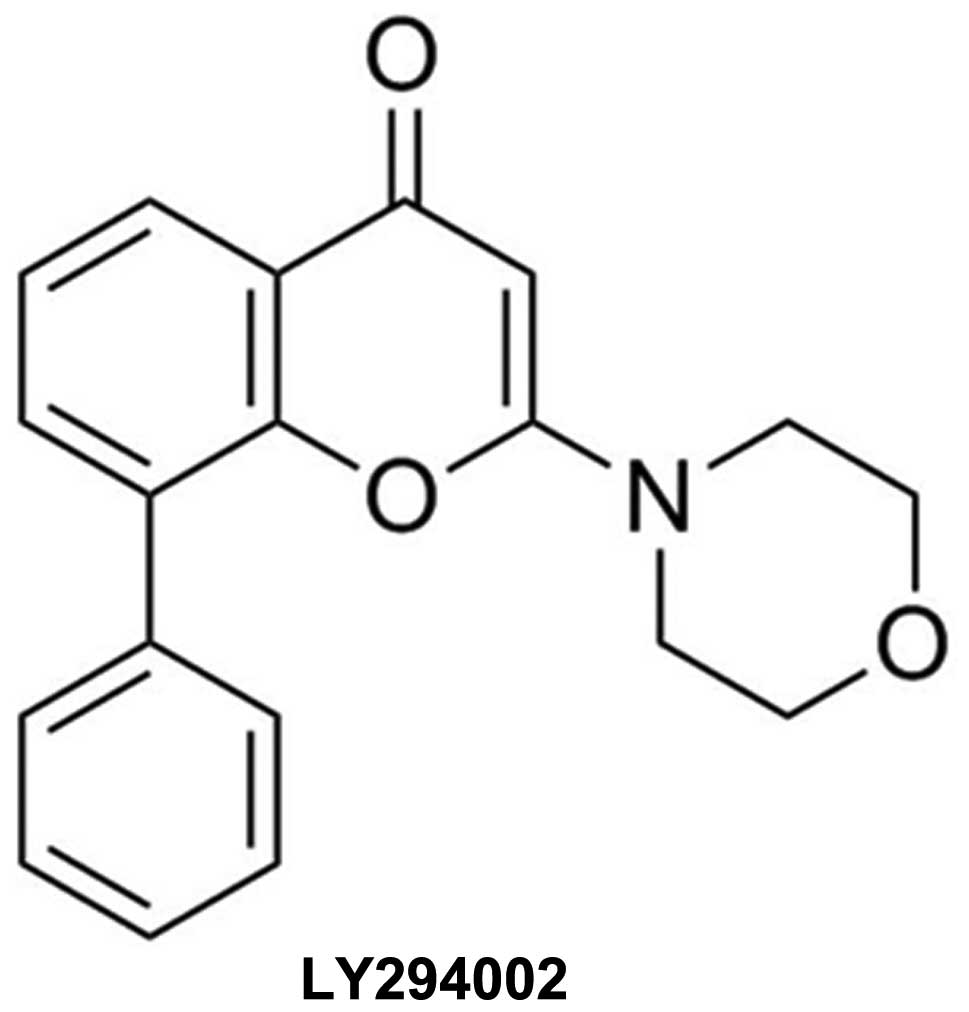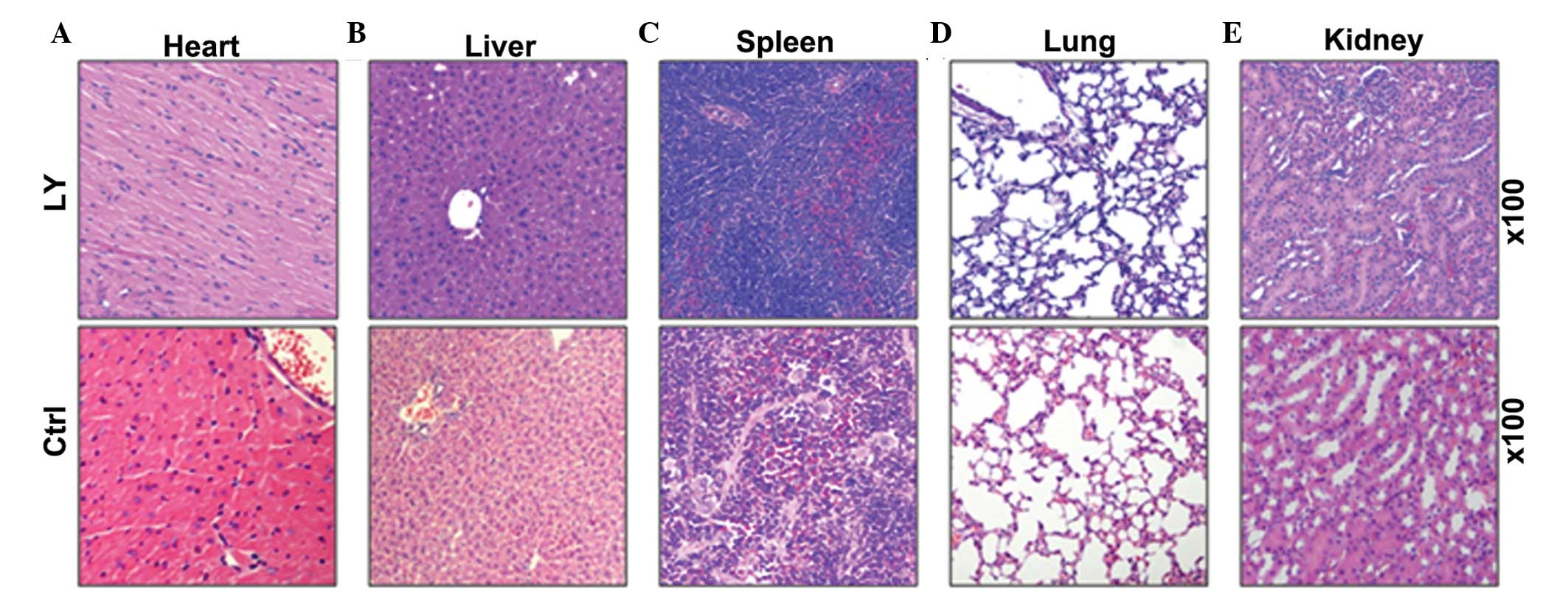|
1
|
Friedman SL: Molecular regulation of
hepatic fibrosis, an integrated cellular response to tissue injury.
J Biol Chem. 275:2247–2250. 2000. View Article : Google Scholar : PubMed/NCBI
|
|
2
|
Tiegs G, Hentschel J and Wendel A: A T
cell-dependent experimental liver injury in mice inducible by
concanavalin A. J Clin Invest. 90:196–203. 1992. View Article : Google Scholar : PubMed/NCBI
|
|
3
|
Moebius U, Manns M, Hess G, Kober G, Meyer
zum Büschenfelde KH and Meuer SC: T cell receptor gene
rearrangements of T lymphocytes infiltrating the liver in chronic
active hepatitis B and primary biliary cirrhosis (PBC):
Oligoclonality of PBC-derived T cell clones. Eur J Immunol.
20:889–896. 1990. View Article : Google Scholar : PubMed/NCBI
|
|
4
|
Schumann J, Wolf D, Pahl A, Brune K,
Papadopoulos T, van Rooijen N and Tiegs G: Importance of Kupffer
cells for T-cell-dependent liver injury in mice. Am J Pathol.
157:1671–1683. 2000. View Article : Google Scholar : PubMed/NCBI
|
|
5
|
Gantner F, Leist M, Lohse AW, Germann PG
and Tiegs G: Concanavalin A-induced T-cell-mediated hepatic injury
in mice: The role of tumor necrosis factor. Hepatology. 21:190–198.
1995.PubMed/NCBI
|
|
6
|
Koerber K, Sass G, Kiemer AK, Vollmar AM
and Tiegs G: In vivo regulation of inducible NO synthase in
immune-mediated liver injury in mice. Hepatology. 36:1061–1069.
2002. View Article : Google Scholar : PubMed/NCBI
|
|
7
|
Duran A, Rodriguez A, Martin P, Serrano M,
Flores JM, Leitges M, Diaz-Meco MT and Moscat J: Crosstalk between
PKCzeta and the IL4/Stat6 pathway during T-cell-mediated hepatitis.
EMBO J. 23:4595–4605. 2004. View Article : Google Scholar : PubMed/NCBI
|
|
8
|
Siebenlist U, Franzoso G and Brown K:
Structure, regulation and function of NF-kappa B. Annu Rev Cell
Biol. 10:405–455. 1994. View Article : Google Scholar : PubMed/NCBI
|
|
9
|
Baeuerle PA and Baltimore D: NF-kappa B:
Ten years after. Cell. 87:13–20. 1996. View Article : Google Scholar : PubMed/NCBI
|
|
10
|
Cimino F, Esposito F, Ammendola R and
Russo T: Gene regulation by reactive oxygen species. Curr Top Cell
Regul. 35:123–148. 1997. View Article : Google Scholar : PubMed/NCBI
|
|
11
|
Wright FL, Moore EE, Nydam TL, et al:
QS406. Hypertonic saline inhibits pro-inflammatory effects of
cytokine stimulation on pulmonary epithelium at the common pathway
of IKB phosphorylation. J Surg Res. 144:4292008. View Article : Google Scholar
|
|
12
|
Ruckle T, Schwarz MK and Rommel C:
PI3Kgamma inhibition: Towards an 'aspirin of the 21st century'? Nat
Rev Drug Discov. 5:903–918. 2006. View
Article : Google Scholar : PubMed/NCBI
|
|
13
|
Peng XD, Wu XH, Chen LJ, Wang ZL, Hu XH,
Song LF, He CM, Luo YF, Chen ZZ, Jin K, et al: Inhibition of
phosphoinositide 3-kinase ameliorates dextran sodium
sulfate-induced colitis in mice. J Pharmacol Exp Ther. 332:46–56.
2010. View Article : Google Scholar
|
|
14
|
Kim HS, Park EJ, Park SW, Kim HJ and Chang
KC: A tetrahy-droisoquinoline alkaloid THI-28 reduces LPS-induced
HMGB1 and diminishes organ injury in septic mice through p38 and
PI3K/Nrf2/HO-1 signals. Int Immunopharmacol. 17:684–692. 2013.
View Article : Google Scholar : PubMed/NCBI
|
|
15
|
Stahl M, Schupp J, Jäger B, Schmid M,
Zissel G, Müller-Quernheim J and Prasse A: Lung collagens
perpetuate pulmonary fibrosis via CD204 and M2 macrophage
activation. Plos One. 8:e813822013. View Article : Google Scholar : PubMed/NCBI
|
|
16
|
Khan MW, Keshavarzian A, Gounaris E,
Melson JE, Cheon EC, Blatner NR, Chen ZE, Tsai FN, Lee G, Ryu H, et
al: PI3K/AKT signaling is essential for communication between
tissue-infiltrating mast cells, macrophages and epithelial cells in
colitis-induced cancer. Clin Cancer Res. 19:2342–2354. 2013.
View Article : Google Scholar : PubMed/NCBI
|
|
17
|
Seropian IM, Abbate A, Toldo S, Harrington
J, Smithson L, Ockaili R, Mezzaroma E, Damilano F, Hirsch E and Van
Tassell BW: Pharmacologic inhibition of phosphoinositide 3-Kinase
gamma (PI3Kγ) promotes infarct resorption and prevents adverse
cardiac remodeling after myocardial infarction in mice. J
Cardiovasc Pharmacol. 56:651–658. 2010. View Article : Google Scholar : PubMed/NCBI
|
|
18
|
Siragusa M, Katare R, Meloni M, Damilano
F, Hirsch E, Emanueli C and Madeddu P: Involvement of
phosphoinositide 3-kinase gamma in angiogenesis and healing of
experimental myocardial infarction in mice. Circ Res. 106:757–768.
2010. View Article : Google Scholar : PubMed/NCBI
|
|
19
|
Wang ZL, Wu XH, Song LF, Wang YS, Hu XH,
Luo YF, Chen ZZ, Ke J, Peng XD, He CM, et al: Phosphoinositide
3-kinase gamma inhibitor ameliorates concanavalin A-induced hepatic
injury in mice. Biochem Biophys Res Commun. 386:569–574. 2009.
View Article : Google Scholar : PubMed/NCBI
|
|
20
|
Rangachari M, Mauermann N, Marty RR,
Dirnhofer S, Kurrer MO, Komnenovic V, Penninger JM and Eriksson U:
T-bet negatively regulates autoimmune myocarditis by suppressing
local production of interleukin 17. J Exp Med. 203:2009–2019. 2006.
View Article : Google Scholar : PubMed/NCBI
|
|
21
|
Eriksson U, Ricci R, Hunziker L, Kurrer
MO, Oudit GY, Watts TH, Sonderegger I, Bachmaier K, Kopf M and
Penninger JM: Dendritic cell-induced autoimmune heart failure
requires cooperation between adaptive and innate immunity. Nat Med.
9:1484–1490. 2003. View
Article : Google Scholar : PubMed/NCBI
|
|
22
|
Affò S, Morales-Ibanez O, Rodrigo-Torres
D, Altamirano J, Blaya D, Dapito DH, Millán C, Coll M, Caviglia JM,
Arroyo V, et al: CCL20 mediates lipopolysaccharide induced liver
injury and is a potential driver of inflammation and fibrosis in
alcoholic hepatitis. Gut. 63:1782–1792. 2014. View Article : Google Scholar : PubMed/NCBI
|
|
23
|
Bao XQ and Liu GT: Induction of
overexpression of the 27- and 70-kDa heat shock proteins by
bicyclol attenuates concanavalin A-Induced liver injury through
suppression of nuclear factor-kappaB in mice. Mol Pharmacol.
75:1180–1188. 2009. View Article : Google Scholar : PubMed/NCBI
|
|
24
|
Banan A, Shaikh M, Zhang L, et al:
Upregulation of NF-κB, IκBα phosphorylation (IκBα.P), iNOS and
cytoskeletal protein oxidation and dysfunction in colonic mucosa of
patients with inflammatory bowel disease (IBD). Gastroenterology.
124:A1982003. View Article : Google Scholar
|
|
25
|
Yamaoka S, Courtois G, Bessia C, Whiteside
ST, Weil R, Agou F, Kirk HE, Kay RJ and Israël A: Complementation
cloning of NEMO, a component of the IkappaB kinase complex
essential for NF-kappaB activation. Cell. 93:1231–1240. 1998.
View Article : Google Scholar : PubMed/NCBI
|
|
26
|
Xie JH, Yamniuk AP, Borowski V, Kuhn R,
Susulic V, Rex-Rabe S, Yang X, Zhou X, Zhang Y, Gillooly K, et al:
Engineering of a novel anti-CD40L domain antibody for treatment of
autoimmune diseases. J Immunol. 192:4083–4092. 2014. View Article : Google Scholar : PubMed/NCBI
|
|
27
|
Watanabe R, Azuma RW, Suzuki J, Ogawa M,
Itai A, Hirata Y, Komuro I and Isobe M: Inhibition of NF-κB
activation by a novel IKK inhibitor reduces the severity of
experimental autoimmune myocarditis via suppression of T-cell
activation. Am J Physiol Heart Circ Physiol. 305:H1761–H1771. 2013.
View Article : Google Scholar : PubMed/NCBI
|
|
28
|
Dinarello CA, Simon A and van der Meer JW:
Treating inflammation by blocking interleukin-1 in a broad spectrum
of diseases. Nat Rev Drug Discov. 11:633–652. 2012. View Article : Google Scholar : PubMed/NCBI
|
|
29
|
Knulst AC, Tibbe GJ, Bril-Bazuin C,
Breedland EG, van Oudenarena, Benner R and Savelkoul HF: Cytokine
detection and modulation in acute graft vs. host disease in mice.
Mediators Inflamm. 3:33–40. 1994. View Article : Google Scholar : PubMed/NCBI
|
|
30
|
Van de Laar L, Buitenhuis M, Wensveen FM,
Janssen HL, Coffer PJ and Woltman AM: Human CD34-derived myeloid
dendritic cell development requires intact phosphatidylinositol
3-kinase-protein kinase B-mammalian target of rapamycin signaling.
J Immunol. 184:6600–6611. 2010. View Article : Google Scholar : PubMed/NCBI
|
|
31
|
Rao J, Qian X, Li G, Pan X, Zhang C, Zhang
F, Zhai Y, X and Lu L: ATF3-mediated NRF2/HO-1 signaling regulates
TLR4 innate immune responses in mouse liver ischemia/reperfusion
injury. Am J Transplant. 15:76–87. 2015. View Article : Google Scholar
|
|
32
|
Yoo SY, Le TK, Jeong JJ and Kim DH:
Poligapolide, a PI3K/Akt inhibitor in immunodeficiency virus type 1
TAT-transduced CHME5 cells, isolated from the rhizome of Polygala
tenuifolia. Chem Pharm Bull (Tokyo). 62:467–471. 2014. View Article : Google Scholar
|
|
33
|
Liu SQ, Jiang S, Li C, Zhang B and Li QJ:
miR-17–92 cluster targets phosphatase and tensin homology and
ikaros family zinc finger 4 to promote TH17-mediated inflammation.
J Biol Chem. 289:12446–12456. 2014. View Article : Google Scholar : PubMed/NCBI
|
|
34
|
Goodwin CB, Li XJ, Mali RS, Chan G, Kang
M, Liu Z, Vanhaesebroeck B, Neel BG, Loh ML, Lannutti BJ, et al:
PI3K p110δ uniquely promotes gain-of-function Shp2-induced GM-CSF
hypersensitivity in a model of JMML. Blood. 123:2838–2842. 2014.
View Article : Google Scholar : PubMed/NCBI
|
|
35
|
Zhang E, Feng X, Liu F, Zhang P, Liang J
and Tang X: Roles of PI3K/Akt and c-jun signaling pathways in human
papillomavirus type 16 oncoprotein-induced HIF-1α, VEGF and IL-8
expression and in vitro angiogenesis in non-small cell lung cancer
cells. Plos One. 9:e1034402014. View Article : Google Scholar
|
|
36
|
Eräsalo H, Laavola M, Hämäläinen M,
Leppänen T, Nieminen R and Moilanen E: PI3K Inhibitors LY294002 and
IC87114 reduce inflammation in carrageenan-induced paw oedema and
down-regulate inflammatory gene expression in activated
macrophages. Basic Clin Pharmacol Toxicol. 116:53–61. 2015.
View Article : Google Scholar
|



















